Tennis emerges as world’s most sexist sport following Raymond Moore’s Indian Wells comments
IT’S the competition no sport should want to win but it looks like we have a champion: the title of the world’s most sexist sport goes to ... tennis, writes Wendy Tuohy.
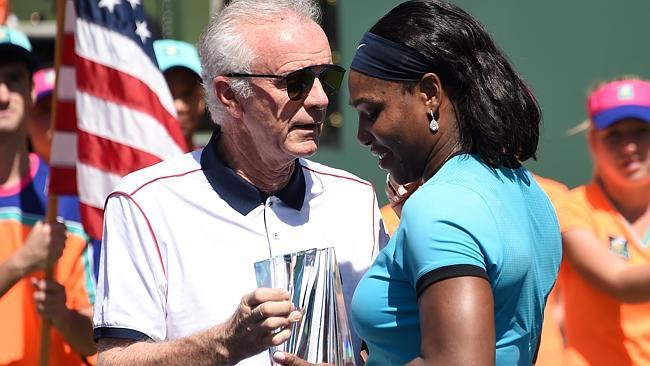
Wendy Tuohy
Don't miss out on the headlines from Wendy Tuohy. Followed categories will be added to My News.
IT’S the competition no sport should want to win but it looks like we have a champion: the title of the world’s most sexist sport goes to (drumroll please)…..tennis.
Footy and soccer are steaming ahead in their support for the women’s game and the credibility it’s attracting.
In golf, swimming and other Olympic sports — including death-defying aerial skiing — women competitors don’t have to put up with patronising assessments of their “attractiveness” or the impact of their “hormones”.
Even the ultimate gentleman’s game, cricket, is celebrating the huge contribution women are making to the game and coverage centres on women players’ skills.
But tennis — the princely sport where the focus on the fashions, the love interests and even the hairstyles of players is getting worse, not better — appears to have missed the memo: alas, it blunders on trashing the brand by belittling women.
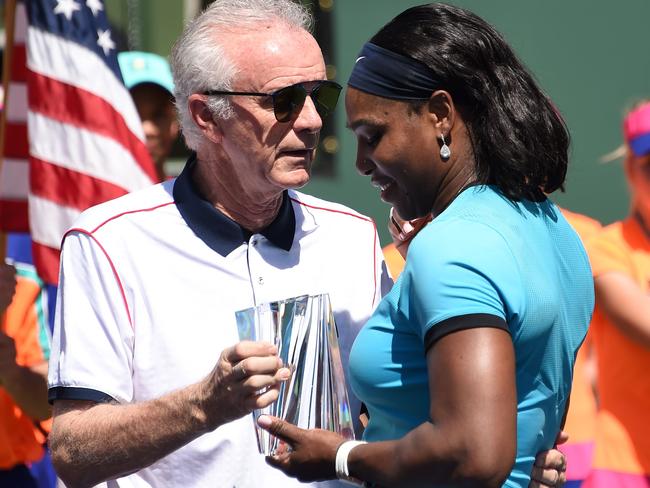
The latest in the long list of tennis’ sexist slights on women came when the CEO of the Indian Wells competition, Raymond Moore, declared female players should “go down on their knees every night” and thank God for the male players upon whose “coat tails they ride”.
Know your place Serena Williams, Eugenie Bouchard, Victoria Azarenka, Venus Williams and stunning Oz open winner Angelique Kerber and all the rest of you heroines of centre court: on your knees. Bow down I tell you!
MORE: ‘If I were a lady, I’d get down on my knees’
Djokovic’s response to sexism storm divides opinion
And if you do want to try to step up on the dais after Serena Williams steps down, then you better be “attractive”.
We know you attractive “girls” — as the women players are incessantly called — are out there, because Mr Moore says there are a handful of you who are very attractive.
“They are physically attractive and competitively attractive. They can assume the mantle of leadership once Serena decides to stop. I think they’ve got — they really have quite a few very, very attractive players.”
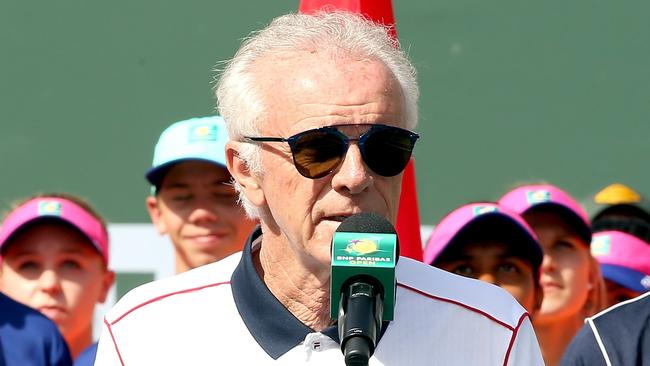
He singled out Eugenie Bouchard, not only a well-known face on the circuit but a veteran target of tennis sexism. Fresh from a win against Ana Ivanovic in Australia she was asked who her dream date would be? Not a question I’ve heard too many blokes asked on camera courtside.
In a live TV interview straight after another impressive win, Bouchard was asked “give us a twirl and tell us about your outfit”.
Yes, in the Jurassic Park known as tennis land, some “girls” are considered ornamental, and commentators feel free to cane the ones that they feel don’t fit this mould.
Remember the head of the Russian Tennis Federation, Shamil Tarpischev, calling the Williams sisters the “Williams brothers” on live TV?
Or when a commentator on the BBC said of Marion Bartoli at Wimbledon: “I just wonder if her dad did say to her when she was 12, 13, 14, ‘Listen, you’re never going to be a looker, you are never going to be somebody like Sharapova, you’re never going to be 5’11’’.
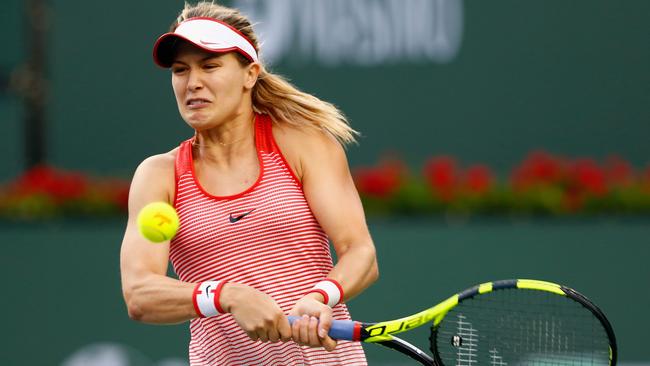
“You’re never going to be somebody with long legs so you have to compensate for that.”
What, with hard work, discipline, endless training, skills … all the stuff for which the talented male players are lionised?
Or when, after Andy Murray hired his second female coach, Australian player Marinko Matosevic said “I couldn’t do it since I don’t think that highly of the women’s game” or when French tennis star Jo-Wilfried Tsonga said the reason the women’s tour is topsy turvy is because “You know, the girls they are more unstable emotionally than us”.
It got worse: “I’m sure everybody way say it’s true, even the girls … I mean, it’s just about hormones and all this stuff. We don’t have all these bad things, so we are physically in good shape every time and you are not. That’s it.”
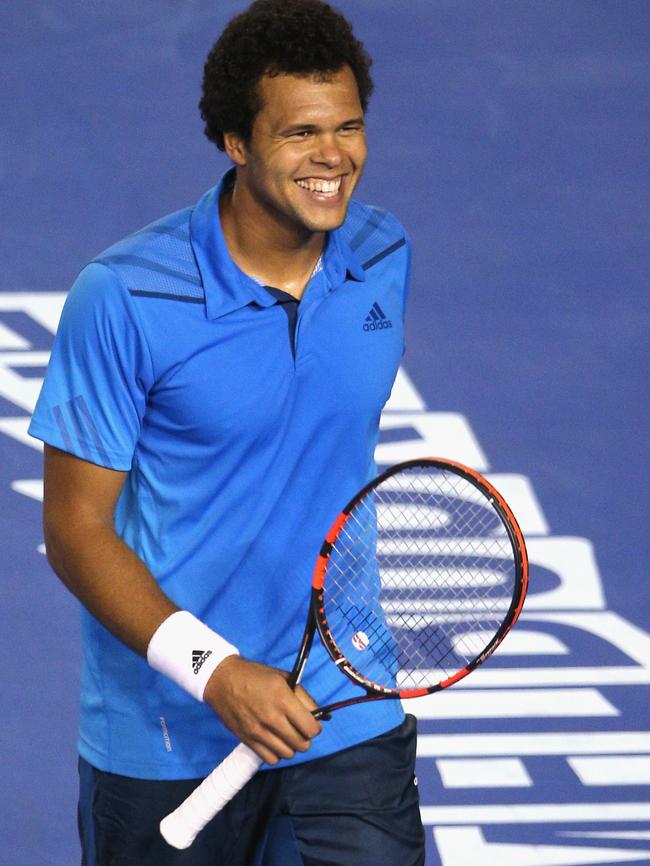
You may wonder how a women’s tennis movement that in many ways led the way for the professionalisation of women’s sport, slipped back to a position of having to put up with this garbage?
Actually, who cares how it happened, let’s see it wound back. Get in the sea, tennis sexism, or risk continuing to insult a vast and valuable sector of your audience (not just women, by the way).
We are watching and we’re listening and we’ve had enough of hearing belittling remarks about women tennis athletes strong enough to wipe the floor with all of you game, set and match.


